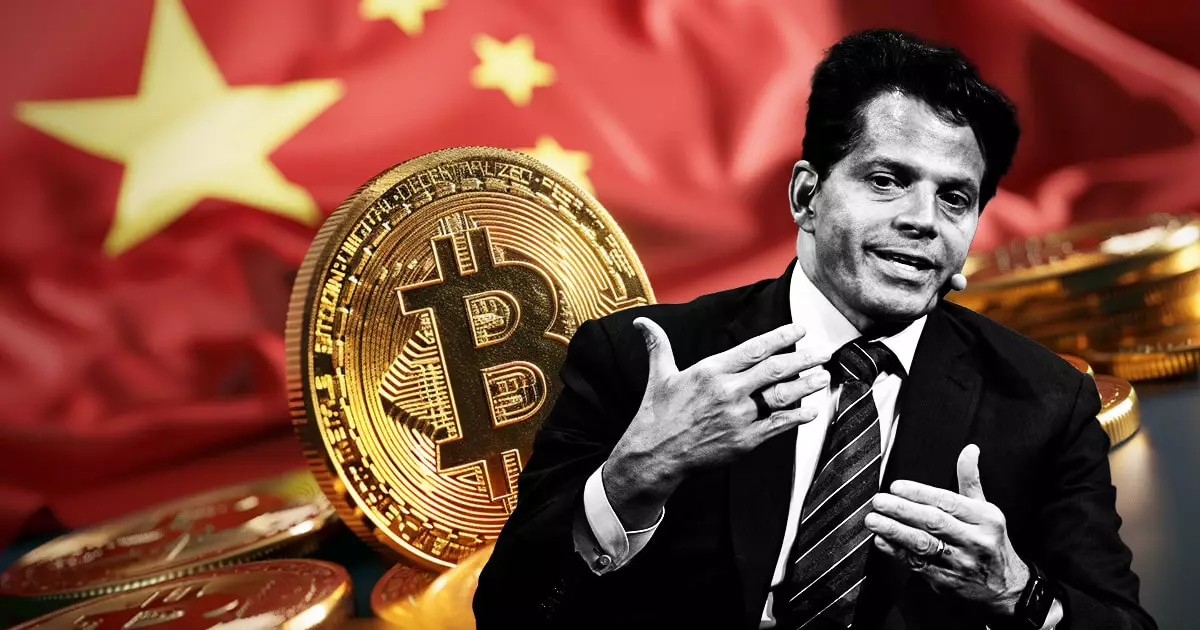In recent years, Bitcoin has transitioned from a niche digital asset to a considerable force within global finance. Anthony Scaramucci’s assertions at the Bitcoin MENA 2024 conference shed light on a potentially transformative pivot—China’s re-engagement with Bitcoin mining and asset reserves. This emerging trend not only underscores a shift in China’s regulatory stance but also emphasizes the broader geopolitical implications of Bitcoin as a strategic reserve commodity. As nations around the world explore the utility of Bitcoin, the future of financial architecture may be on the cusp of substantial change.
China’s Strategic Pivot Towards Bitcoin
Scaramucci’s remarks suggest that China may soon reintroduce legal Bitcoin mining and possibly incorporate Bitcoin into its national reserves. This assertion is particularly noteworthy as it challenges the ongoing narrative of strict regulatory constraints previously placed on cryptocurrency by the Chinese government. If true, such developments will signal a landmark moment in global Bitcoin policy and could lead to competitive dynamics among world powers seeking to leverage digital assets. As countries navigate their economic strategies amidst evolving global trade conditions, the inclusion of Bitcoin in reserve assets could affect trade relations and financial collaborations.
Scaramucci’s perspectives align with the growing trend of nations assessing Bitcoin’s strategic value. Russia’s proposed Bitcoin reserve is a prime example, reflecting a tactical response to economic sanctions and a desire for stability. In Brazil, similar legislative initiatives aim to embed Bitcoin within national reserves as part of a broader strategy to diversify risk and enhance resilience. The willingness of nations to experiment with Bitcoin within their financial frameworks indicates a recognition of its potential utility—not merely as a speculative asset but as a fundamental component of modern finance.
In the U.S., a conversation is brewing among policymakers regarding formalizing Bitcoin reserves. The Trump administration’s commitment to existing Bitcoin laws has fueled discussions about the federal government adopting substantial Bitcoin holdings. Legislative efforts, such as those proposed by Senator Cynthia Lummis, demonstrate a proactive approach to integrate Bitcoin into the national budget over several years, emphasizing long-term financial strategies rather than momentary gains. Concurrently, states like Pennsylvania have initiated plans to include Bitcoin in their reserves, highlighting a decentralized but concerted effort to acknowledge and adapt to the cryptocurrency.
Corporations, particularly in the financial sector, have begun to favor measures that endorse Bitcoin reserves. Asset management giants like BlackRock are signaling potential support for the establishment of a U.S. strategic Bitcoin reserve. Such institutional involvement enhances broader acceptance of Bitcoin as a legitimate financial instrument. Following the anticipated events like the Bitcoin halving and upcoming elections, which historically correlate with market rallies, the notion of Bitcoin transitioning toward becoming a stable reserve asset might gain traction among both institutional and governmental entities.
Despite the optimistic outlook surrounding Bitcoin’s adoption as a strategic reserve, skepticism persists. Critics highlight the volatility associated with cryptocurrencies and express concerns about wealth disparities that might emerge as taxpayers potentially subsidize Bitcoin assets held by wealthy investors. These risks necessitate a nuanced approach to integrating Bitcoin into national reserves, calling for robust regulatory frameworks to mitigate potential fallout from market fluctuations.
The future of Bitcoin as an integral part of national reserve strategies is becoming ever more plausible, as indicated by recent commentary from financial experts and geopolitical shifts. As China contemplates reestablishing its position in Bitcoin mining and reserves, and as other nations like Russia and Brazil seek to leverage the digital asset, the discourse around Bitcoin’s role in national finance is evolving. The implications of this shift extend far beyond financial markets—they reach into the realms of international relations, economic stability, and national security. As we witness these developments unfold, it will be crucial to monitor how these strategic moves reshape the landscape of global finance and redefine national approaches to digital currencies.















